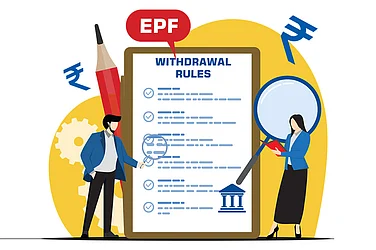Have you ever noticed how an equity mutual fund delivering better returns over the last year suddenly gets all the attention even if it lagged behind for a few years before that? Data shows that, typically, the best performing funds in the recent past get relatively higher inflows. This type of optimism, which is attached on the basis of a recent event or performance, manifests into recency bias, which can mislead even the smartest of investors.
So, what is recency bias? It is a cognitive bias where people give undue weightage to recent events while ignoring the longer-term trend or historical data. In investing, this means decisions are often based on short-term performance, recent market behaviour, or the latest headlines, rather than sound fundamentals.
How Can Recency Bias Hurt Your Investments?
Recency bias can trick you into chasing hot stocks or mutual funds just because they did well recently. This could even lead you to ignore assets or products which have a proven track record in the long term, but whose performance may have dipped only recently.
The rise of thematic funds in 2023-2024 is a classic example of recency bias. Every time a sector does well, money starts pouring into sectoral or thematic funds.
For instance, after the strong performance of pharma funds in 2020-21, investors flocked to them in 2022, expecting continued outperformance. But sectors work in cycles, and late-comers often face the heat. In such cases, investors get influenced by recent returns, and do not bother to assess if the sector still has any value left.
Recency bias makes you believe that what is happening now is what will keep happening. But investing is not about predicting the next six months, it is about planning for your financial goals that may be 5-10 or even 20 years away from. Your goals will likely be both short-term or long term depending on the time horizon and having a recency bias could prove detrimental to both.
How to Overcome Recency Bias?
Identify if recent events affect your investing decisions. It could be about making fresh investments or knee-jerk withdrawals.
Stick to your pre-decided asset allocation. So if the equity portion dips, say, after a market fall, add to it rather than exit.
Pause and reflect if you are reacting to an ongoing trend or an asset really merits a place in your portfolio.
Once identified, double-check the investments by looking at not just recent returns but the long-term track record.
Stick to your financial plan. If you are sure you will reach your goal, interim volatility shouldn’t faze you.













